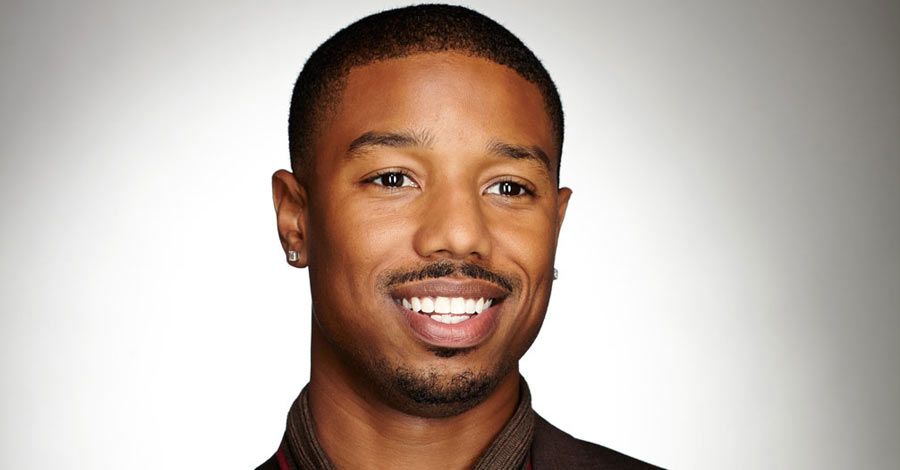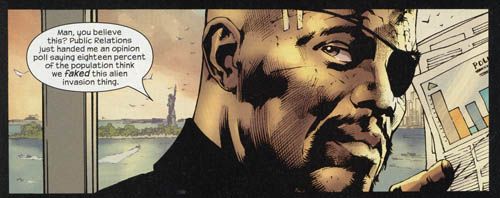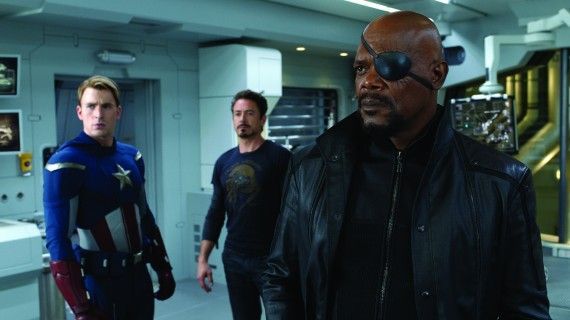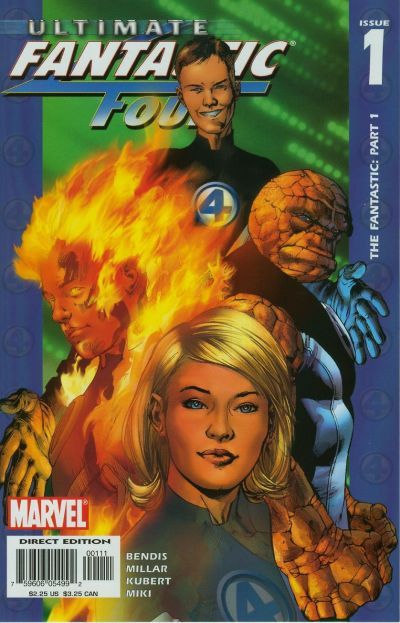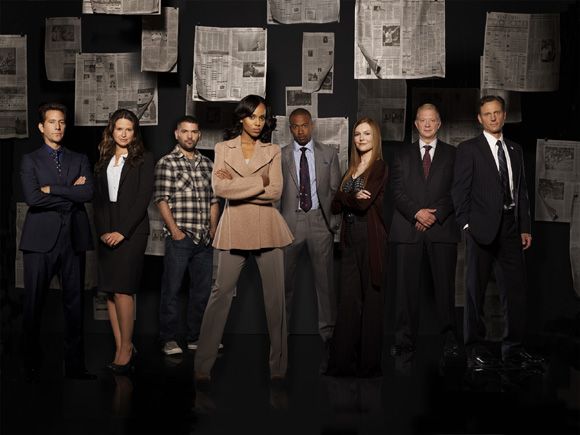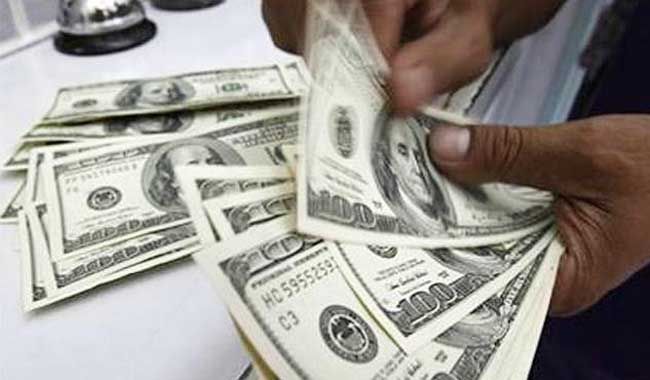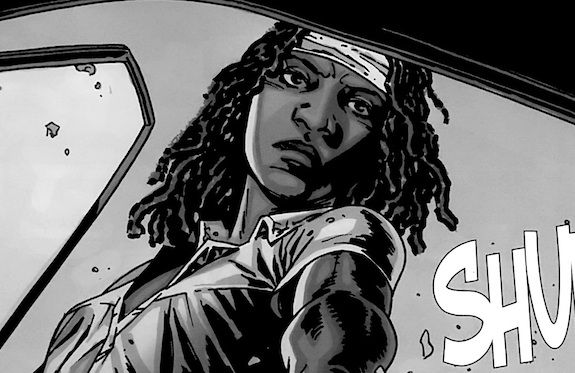In 1961, when the original Fantastic Four debuted in their eponymous series from Marvel Comics, they were a quartet of Caucasian people, mostly adults with one teenager. Co-created by two giants of the comic book industry, Stan Lee and the deceased Jack Kirby, the FF was perfectly designed to speak to younger and older audiences while reflecting a society that was caught between, among other things, a celebrity culture and The Space Race. Next year, the latest reboot of 20th Century Fox's "Fantastic Four" film franchise will arrive in theaters, but one of the main characters will be Black.
Fox Casts Its "Fantastic Four": Jordan, Bell, Mara & Teller
And now, the inevitable has been unleashed -- the cosmic ray storm of opinion across the cyber-galactic spaceways of social media. You think it's because the formerly blond Caucasian character of Johnny Storm is Black... but it's not.
It's because you haven't been brainwashed in the right sequence. Please allow me to explain.
In the year 2000, Marvel Comics started the publishing initiative that would revamp their decades-old characters in modern times, making them fresh and interesting to a new audience.
To a NEW audience.
That initiative was called the Ultimate line of comics. It started with "Ultimate Spider-Man," which was followed by "Ultimate X-Men," but the title of import in this point is called "The Ultimates."
A modern take on a super-group that used to be called "The Avengers," The Ultimates breathed new life into Iron Man (star of three blockbuster Marvel Cinematic Universe films), Captain America (star of one MCU film, with another on the horizon), Thor (star of two MCU films), and a number of others.
The team was led by Nicholas Fury, the superspy leader of the most powerful government organization you wish you worked for, S.H.I.E.L.D., and originally when Nick Fury was created in those '60s I referred to earlier, he was Caucasian -- but in The Ultimates of the 21st Century, Nick Fury was made Black.
Not only was he Black, he was modeled, in look and manner of speech, after badass actor Samuel L. Jackson, making Ultimate Nick Fury the Ultimate Black Man in the World.
"The Ultimates" sold through the roof, purchased by me and over a hundred thousand other people, issue after issue, so that six years later, when Samuel L. Jackson appeared as Nick Fury in a cameo after the end credits of the first "Iron Man" film in 2008, the fan community lost its collective mind.
By the time "The Avengers" came out four years later, we were already tenderized and massaged and manipulated by Hollywood to accept, without question, the Black version of a Caucasian character created almost fifty years earlier.
But... with the Fantastic Four, Marvel Comics goofed.
They launched the "Ultimate Fantastic Four" comic book in 2004, again as a way to reintroduce these characters to the fan base while making them fresh for a new audience, but they left all of the characters Caucasian.
If they had made the Ultimate Johnny Storm Black in the comics a decade ago, you would have had a decade to complain about it, buy it so you could complain about it with authentic knowledge, become exhausted, get over it, and accept next year's "Fantastic Four" With That Black Actor From That Critically-Acclaimed Film with a little less stress and anger.
However, they did not, and so, to paraphrase the words of Denzel Washington as Malcolm X by way of Spike Lee, you feel like you've been had. Took. Hornswaggled. Bamboozled.
Or maybe you feel that Johnny Storm is a character of which you have some ownership, purchased in the currency of childhood memories and nostalgia, blissfully ignoring the inescapable fact that "Johnny Storm" and "Fantastic Four" are names of intellectual properties owned by a big corporation and licensed out to other corporations for use and exploitation.
So really, his ethnicity, sexual orientation, and even gender are all subject to change if Those With The Power choose to do so.
Or maybe you feel like one Black person in a cast changes the entire nature of an idea in amazing alchemical fashion, much like your feelings about the United States of America, or like Joshua's feelings about Troy in season two of "Community."
Or maybe you realize that out of the millions of people who purchase movie tickets to blockbuster superhero films, most of them do not read the Fantastic Four comic and do not know about the characters and do not have any pre-conceived notions of what it is supposed to be, other than something interesting enough to justify the cost of the ticket and maybe the DVD some months later.
And there are a number of other possibilities for points of view on this issue, but at the core of this thing we're arguing about called "The Fantastic Four" are core themes which supersede ethnicity.
Stick by your family, even if they drive you crazy.
Stand by your loved ones, even when you feel like sitting down.
Hold their hands and enter the gates of Hell, fighting any and all enemies with your last breath.
This is the 21st Century.
At least twelve percent of the American population is Black. The President is Black. Olivia Pope is Black. Almost half of the "Fast & Furious" team is Black.
And don't forget Black Twitter. Yes, Black people have carved out their own section of Twitter.
POLL: What Do You Think of Fox's Rebooted "Fantastic Four" Cast?"
Black people will have a projected buying power of 1.1 trillion dollars by next year. That's what this is about. Not your nostalgia or prejudices or self-centeredness or strange sense of ownership. Demographics, buying power, and spending tendencies.
And with that realization, as we all simmer down from the one million degree nova blast that our beloved Johnny Storm is known for, let's admit a few things:
We're going to buy tickets to see this film.
Not all of us will leave the theater happy, or emotionally unscathed.
Some of us will be pleasantly surprised.
The Powers That Be know all of this, and they're counting on it. So for all of you who can't accept it, Hollywood is not listening to you. The best bet for all of us would be for comic book publishers to make sure there are no more exclusively Caucasian casts in the comic books. That way, when you get someone of color in a movie or TV show, it won't be an aberration. It'll be a perfect translation.
Just ask Robert Kirkman.
After all, Michonne was always Black.
Joseph Phillip Illidge is the Head Writer for Verge Entertainment (www.verge.tv), a production company co-founded with Shawn Martinbrough, artist for the graphic novel series "Thief of Thieves" by "The Walking Dead" creator Robert Kirkman, and videogame developer Milo Stone. Verge has developed an extensive library of intellectual properties for transmedia development. Live-action and animated television and film, videogames, graphic novels, and web-based entertainment.
Joseph has been a public speaker on the subjects of race, comics, and politics at Digital Book World's forum, Digitize Your Career: Marketing and Editing 2.0, Skidmore College, Purdue University, on the panel "Diversity in Comics: Race, Ethnicity, Gender and Sexual Orientation in American Comic Books," and at the Soho Gallery for Digital in New York City.
His latest project is "The Ren," a 200-page graphic novel about the romance between a young musician from the South and a Harlem-born dancer in 1925, set against the backdrop of a crime war and spotlighting the relationship between art and the underworld. "The Ren" will be published by First Second Books, a division of Macmillan.

